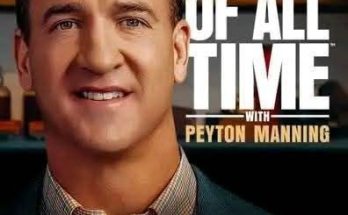WARRIORS STUN NBA WORLD BY SIGNING 38-YEAR-OLD AL HORFORD — A PRIVILEGE EVEN STEPHEN CURRY HAS NEVER RECEIVED.
In a move that has left both fans and analysts stunned, the Golden State Warriors have pulled off one of the most unexpected roster decisions in recent memory, signing 38-year-old veteran big man Al Horford. What makes this deal even more surprising is the level of commitment the organization has shown to the aging forward—something so unprecedented that even Stephen Curry, the face of the franchise and one of the greatest players in NBA history, has never been granted a comparable privilege. This decision has not only shaken the foundations of the Warriors’ front office philosophy but has also triggered a flurry of debate across the league about loyalty, legacy, and the evolving nature of team-building.
Al Horford, who most recently played for the Boston Celtics, has long been revered for his basketball IQ, unselfish play, leadership, and ability to stretch the floor as a big man. Over his 17-year NBA career, he has built a reputation as a stabilizing presence—never flashy, but always impactful. His defensive versatility, sharp passing skills, and clutch performances in big moments made him an integral part of Boston’s recent success. Now, after what many assumed was the twilight of his career, he’s landed in the Bay Area under circumstances few could have predicted.
What’s even more remarkable about this development is the nature of the deal. Reports confirm that the Warriors have not only signed Horford but have committed to him in a way that borders on historic. While the specific details of the contract remain confidential, sources close to the organization suggest that Horford has been promised a multi-year role that includes guaranteed rotation minutes, mentorship responsibilities, and even input on locker room dynamics and team development. Such privileges have rarely—if ever—been extended to a player not named Stephen Curry within the Golden State system.
That fact alone has made headlines. Stephen Curry, four-time NBA champion, two-time MVP, and universally regarded as the cornerstone of the Warriors dynasty, has never been granted the kind of long-term off-court influence now being afforded to Horford. While Curry’s leadership is unquestioned, and his voice certainly carries weight within the organization, the official granting of strategic influence and structural guarantees to another player—especially one who hasn’t played a minute in a Warriors uniform—raises eyebrows.
Fans have expressed mixed reactions. On one hand, Horford’s wealth of experience and professional demeanor make him an ideal mentor for the Warriors’ younger core, which includes Jonathan Kuminga, Moses Moody, and Brandin Podziemski. On the other hand, giving a 38-year-old veteran this level of control in what is clearly a team in transition might suggest a shift away from the traditional “strength in numbers” mantra that has defined the Warriors’ championship culture.
“This is a signal,” said one NBA executive anonymously. “It’s not just about getting a good vet in the locker room. This is about culture, and perhaps a deeper acknowledgment by the Warriors that their identity is evolving.”
Some insiders speculate that the move is less about on-court performance and more about stability. With the departure of Klay Thompson, questions surrounding Draymond Green’s consistency, and Curry’s own timeline slowly winding down, Golden State may be attempting to fill a leadership vacuum before it becomes a crisis. In that context, Horford is seen as a bridge between eras—a player whose experience could help usher in the next generation while preserving the professionalism and team-first mentality that made the Warriors successful in the first place.
Still, the decision brings with it a quiet tension. Curry, ever the professional, has remained supportive in public, reportedly even giving his blessing to the move. But sources indicate that he was not involved in the initial stages of the negotiation, and some close to the situation have hinted that he was surprised by the level of commitment the front office made to Horford so quickly.
“I don’t think anyone’s doubting Al’s pedigree,” said a former Warriors assistant coach. “But for Steph to have carried this team, this city, for over a decade, and then see someone else walk in and be handed such a powerful role—it definitely creates a dynamic that will need to be managed very carefully.”
From a basketball perspective, Horford still has gas in the tank. During the Celtics’ most recent playoff run, he logged meaningful minutes and often played a crucial role in late-game defensive switches and floor spacing. While he may not be the athletic force he once was, his intelligence and court awareness more than make up for the decline in physicality. The Warriors, known for their motion offense and emphasis on high-IQ play, could be an ideal system for Horford to maximize what remains of his game.
However, the NBA is a league increasingly driven by youth, pace, and versatility. Bringing in a veteran nearing 40 and making him a central piece of the puzzle is not only unconventional—it’s a gamble. The Warriors appear to be betting that Horford’s intangible contributions will outweigh any physical limitations. If they’re right, he could help stabilize a roster in flux and buy valuable time for Golden State’s younger players to mature. If they’re wrong, they risk alienating their current leaders and stalling the team’s competitive ambitions.
Another layer to this move is its timing. With several marquee free agents still on the market and trade rumors swirling around key players across the league, the Warriors’ choice to prioritize Horford sends a message—not only about their current goals but also about their future direction. Are they still chasing titles? Or are they pivoting toward a transitional phase that values leadership, mentorship, and continuity over raw talent?
Interestingly, Horford has reportedly embraced the role with open arms. In his first media availability since the announcement, he expressed deep appreciation for the trust Golden State has shown in him.
“I’m honored,” Horford said. “To be brought into a franchise with this kind of history, this kind of championship pedigree—and to be entrusted with a leadership role—it means everything. I’m not here just to play basketball. I’m here to help shape the next generation.”
Those comments only fueled the speculation that Horford’s role extends far beyond the hardwood. Insiders suggest he may even be involved in developing the team’s cultural playbook—helping set behavioral standards, mentoring incoming rookies, and serving as a liaison between coaching staff and the locker room. Such duties are typically reserved for franchise players or team captains, not newly signed free agents.
As the season approaches, all eyes will be on how Horford integrates with the Warriors’ roster. Will he serve as a calming presence that helps young players find their rhythm? Will he complement Curry in ways that reignite the team’s competitive fire? Or will the unusual nature of his signing create friction in a locker room that’s already undergoing significant change?
For Curry, the ultimate professional and the undisputed heart of the franchise, the situation presents a test of grace and adaptability. His legacy is secure, but the road ahead may require him to navigate uncharted waters as the team experiments with new leadership dynamics. And while he may not have been given the same contract privileges as Horford, it’s clear that his influence will still loom large over everything the Warriors do.
One thing is certain: the signing of Al Horford is not just a basketball move—it’s a cultural shift. It reflects a changing landscape in the NBA, where veteran experience is being re-evaluated and leadership is seen as a long-term asset, not just a bonus. Whether this strategy pays off in wins and titles remains to be seen, but for now, the Warriors have made it clear: they’re playing the long game. And in that game, Al Horford is suddenly one of their most important pieces.



